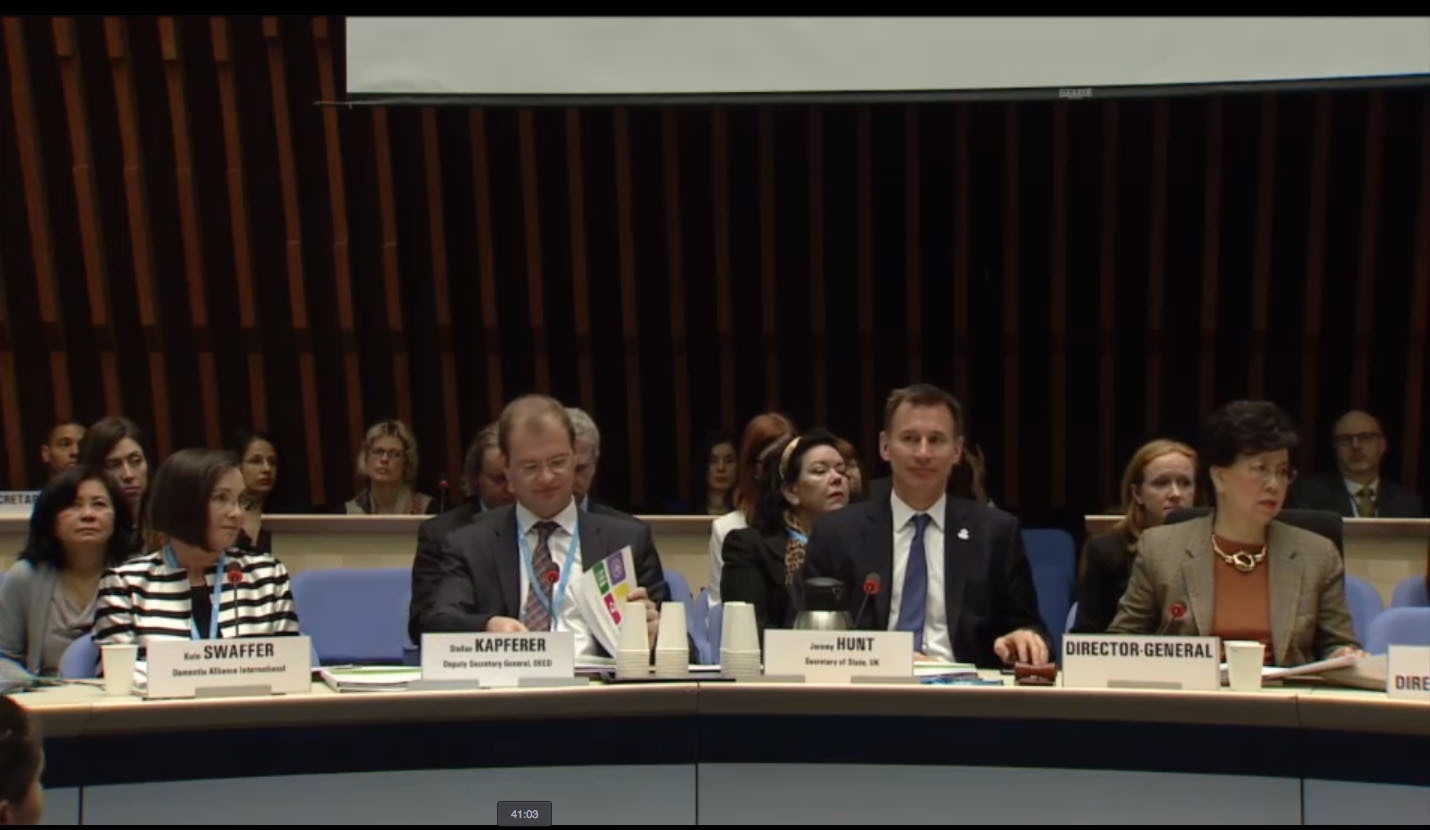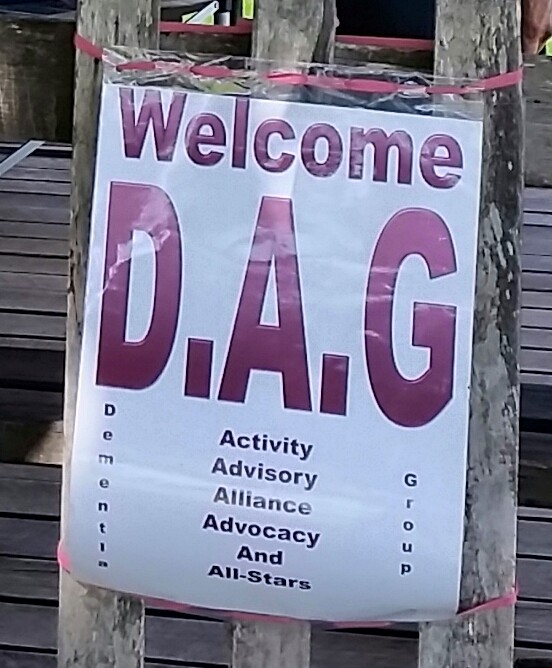This was my ‘pledge’ for #globaldementia
It reflects Kate Swaffer talking about people with dementia and caregivers being ‘equal partners’. I couldn’t agree more.
This is my enhanced version of ‘no decision about us without us’. It’s my way of saying “do not inadvertently create division” by making people with dementia seem like targets of a ‘does he take sugar?’ attitude. I feel personally that the ‘dementia friendly communities’ policy globally, as outlined here by the Alzheimer’s Disease International, is working well, away from the tokenistic patronising crap many of us have warned against.
And good on for @KateSwaffer, Chair of the Dementia Alliance International, for not only getting a seat at the table, but also making herself comfy at it and sending rhetorical nuclear missiles at the establishment.
In case you missed it you can watch it here. Kate spoke just after Jeremy Hunt in the session on Monday morning in Geneva, 16 March 2015.
Kate believes that “we must all include this in her goal”, “to think about how can empower people to live better with dementia”. But Kate was aghast that there had been no mention of rehabilitation thus far in the proceedings.
Kate welcomed the significance of the appointment of Hillary Doxford onto the World Dementia Council. Hillary herself lives with young onset dementia. I myself campaigned for a person with dementia to be included as a member of the Council, but it was the Dementia Alliance International who spearheaded this.
Kate explained the need for better care, services and research into living better with dementia.
These are the three aims which Kate promoted.
Kate called the ‘prescribed disengagement‘ which accompanied the disclosure of her diagnosis ‘unethical’. She emphasised, “we don’t have a cure yet. we all know that. we are not that much closer to a cure.”
In the article for Dementia journal, Kate describes it powerfully thus:-
“Following a diagnosis of dementia, most health care professionals, including neurologists, geriatricians, physicians, general practitioners, and dementia service providers prescribe giving up a pre-diagnosis life and put all the planning in place for the demise of the person newly diagnosed with dementia such as wills, powers of guardianship and other end of life issues. I was told ‘to give up work, give up study, and to go home and live for the time I had left’. By 2009, I had termed this Prescribed Dis-engagementTM, and I ultimately chose to ignore it. One has to ask the question: Why is it that one day I was studying a tertiary degree, working full time, volunteering, raising a family and running a household with my husband, and the next day, told to give it all up, to give up life as I knew it, and start ‘living’ for the time I had left?
This Prescribed Dis-engagementTM sets up a chain reaction of defeat and fear, which negatively impacts a person’s ability to be positive, resilient and proactive.”
Dementia is the only disease or condition and the only terminal illness that I know of where patients are told to go home and give up their pre-diagnosis lives, rather than to ‘fight for their lives’.
The families and partners are also told they will have to give up work soon to become full time ‘carers’. Getting yourself acquainted with residential care is recommended. All of this advice is well-meaning, but based on a lack of education and misperceptions and myths about how people can live with dementia. This sets us up to live a life without hope or any sense of a future and destroys our sense of future well-being; it can mean the person with dementia behaves like a ‘victim’ or ‘sufferer’, and many times their care partner as a martyr.”
She emphasised, “We need psychosocial interventions, and research into them.”
“It’s very clear to me that I could’ve stayed at work, and paying taxes.”
Kate made reference to some of the groundbreaking research which is happening to look at improving quality of life.
“HTA Goal-oriented cognitive rehabilitation in early-stage Alzheimer’s disease: multi-centre single-blind randomised controlled trial (GREAT)” is a collaborative research trial with Prof. Linda Clare as the chief investigator.
Early intervention offers the possibility of helping people with early-stage dementia (PwD) and their carers to manage the impact of the disease on everyday life, and reducing or delaying the progression of disability. “Cognitive rehabilitation” involves identifying realistic and achievable goals reflecting areas of everyday activity where the PwD experiences difficulty due to changes in memory and other cognitive abilities, and wishes to see improvements. needs are addressed in the context where they arise.
One thing’s certain: Kate has played a blinder. In speaking so powerfully about the importance of wellbeing for individuals who’ve received a diagnosis of dementia, she has put a new set of cards on the table. Far from dismissing the effort for finding the cure, which she calls ‘the golden egg’, Kate has drawn attention to the 470 million or so people in the world living with dementia, and the crucial need for them to be involved in policy. Kate Swaffer undoubtedly has left a significant legacy in rights for individuals living with dementia which has been carefully now seeded in a number of jurisdictions.






0 Responses